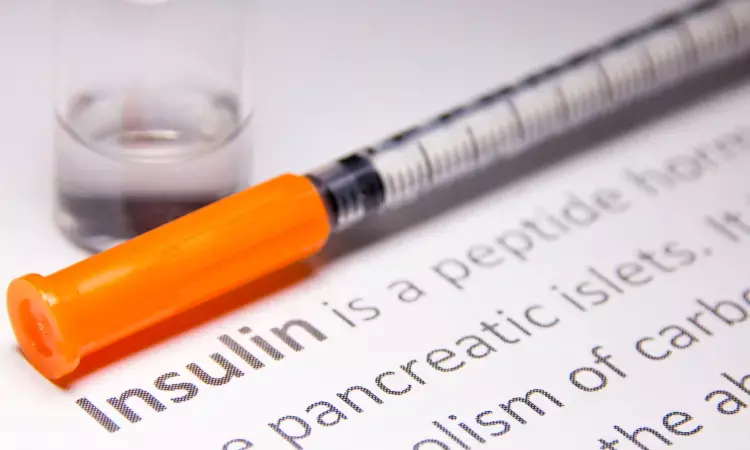- Home
- Medical news & Guidelines
- Anesthesiology
- Cardiology and CTVS
- Critical Care
- Dentistry
- Dermatology
- Diabetes and Endocrinology
- ENT
- Gastroenterology
- Medicine
- Nephrology
- Neurology
- Obstretics-Gynaecology
- Oncology
- Ophthalmology
- Orthopaedics
- Pediatrics-Neonatology
- Psychiatry
- Pulmonology
- Radiology
- Surgery
- Urology
- Laboratory Medicine
- Diet
- Nursing
- Paramedical
- Physiotherapy
- Health news
- Fact Check
- Bone Health Fact Check
- Brain Health Fact Check
- Cancer Related Fact Check
- Child Care Fact Check
- Dental and oral health fact check
- Diabetes and metabolic health fact check
- Diet and Nutrition Fact Check
- Eye and ENT Care Fact Check
- Fitness fact check
- Gut health fact check
- Heart health fact check
- Kidney health fact check
- Medical education fact check
- Men's health fact check
- Respiratory fact check
- Skin and hair care fact check
- Vaccine and Immunization fact check
- Women's health fact check
- AYUSH
- State News
- Andaman and Nicobar Islands
- Andhra Pradesh
- Arunachal Pradesh
- Assam
- Bihar
- Chandigarh
- Chattisgarh
- Dadra and Nagar Haveli
- Daman and Diu
- Delhi
- Goa
- Gujarat
- Haryana
- Himachal Pradesh
- Jammu & Kashmir
- Jharkhand
- Karnataka
- Kerala
- Ladakh
- Lakshadweep
- Madhya Pradesh
- Maharashtra
- Manipur
- Meghalaya
- Mizoram
- Nagaland
- Odisha
- Puducherry
- Punjab
- Rajasthan
- Sikkim
- Tamil Nadu
- Telangana
- Tripura
- Uttar Pradesh
- Uttrakhand
- West Bengal
- Medical Education
- Industry
Insulin degludec 3-times weekly Less Effective Than insulin glargine once-daily in Short-Term Glycemic Control: Study

Researchers have found in a new study that in short-term follow-up, insulin degludec 3-times weekly (3TW) was less effective than once-daily IGlar in controlling blood glucose, though both had similar safety profiles. Larger multicenter trials are needed to assess their overall benefit-risk ratio for clinical use. The study was published in the British Journal of Hospital Medicine by Kamrul-Hasan and colleagues.
Effective blood glucose control in T2DM continues to be the foundation of treatment to avoid complications. Conventional therapy usually involves daily injections of insulin glargine (IGlar OD), which can be inconvenient for certain patients. Insulin degludec (IDeg), on the other hand, has a more prolonged action profile, allowing thrice-weekly injections (IDeg 3TW), which can be less burdensome. Clinical evidence comparing these two therapeutic approaches in effectiveness and safety has thus far been sparse and inconsistent. To date, no systematic review and meta-analysis to inform practice had been conducted.
The study team searched MEDLINE (via PubMed), Scopus, Cochrane Central Register, and ClinicalTrials.gov for RCTs comparing IDeg 3TW as an intervention and IGlar OD as a control in adult patients with T2DM. The search was limited to trials initiated from the outset to 30 July 2024. Primary outcome was glycated hemoglobin (HbA1c) change, and secondary outcomes were other glycemic parameters as well as adverse events. Data analysis with random-effects models was done using the RevMan Web tool, and results were presented as mean difference (MD), odds ratio (OR), or risk ratio (RR) with 95% confidence intervals (CIs).
Key Findings:
• Three good-quality RCTs with 1171 patients and duration 16–26 weeks were included in the meta-analysis.
• HbA1c reduction: IDeg 3TW was 0.27% less effective (MD 0.27%, 95% CI [0.14, 0.39], p < 0.0001)
• Nine-point self-monitored blood glucose profile: Less improvement with IDeg 3TW (MD 0.45 mmol/L, 95% CI [0.22, 0.67], p < 0.0001)
• Proportion achieving HbA1c <7%: The OR was low in the IDeg 3TW compared with the IGlar OD group (OR 0.69, 95% CI [0.53, 0.89], p = 0.005).
• Curiously, IDeg 3TW had a modestly lower insulin dose requirement (MD –0.07 U, 95% CI [–0.13, –0.01], p = 0.02) than IGlar OD but was not reflected in better glycemic control.
• Fasting plasma glucose: MD 0.37 mmol/L, 95% CI [–0.19, 0.93], p = 0.19
• Body weight change: MD 0.04 kg, 95% CI [–0.46, 0.55], p = 0.86
• Physical health score: MD 0.21, 95% CI [–0.62, 1.04], p = 0.62
• Mental health score: MD –0.02, 95% CI [–1.05, 1.01], p = 0.97
• Confirmed hypoglycemia: RR 1.16, 95% CI [0.83, 1.62], p = 0.38
• Nocturnal hypoglycemia: RR 1.18, 95% CI [0.49, 2.84], p = 0.71
• Any adverse events: RR 1.04, 95% CI [0.84, 1.30], p = 0.71
• Serious adverse events: RR 1.43, 95% CI [0.77, 2.65], p = 0.25
• Injection-site reactions: RR 1.29, 95% CI [0.56, 2.96], p = 0.55
Thrice-weekly insulin degludec was inferior to once-daily insulin glargine for glycemic control at 16–26 weeks in type 2 diabetes adults, while both treatments were equally safe. Greater multicenter RCTs with more prolonged follow-ups are required to further evaluate the benefit-risk ratio and to identify the best candidates for IDeg 3TW therapy.
Reference:
Kamrul-Hasan, A. B. M., Borozan, S., Fernandez, C. J., Dutta, D., Nagendra, L., & Pappachan, J. M. (2025). Thrice-weekly insulin degludec versus once-daily insulin glargine in insulin-naïve patients with type 2 diabetes mellitus: A systematic review and meta-analysis. British Journal of Hospital Medicine (London, England: 2005), 86(7), 1–16. https://doi.org/10.12968/hmed.2024.0716
Dr Riya Dave has completed dentistry from Gujarat University in 2022. She is a dentist and accomplished medical and scientific writer known for her commitment to bridging the gap between clinical expertise and accessible healthcare information. She has been actively involved in writing blogs related to health and wellness.
Dr Kamal Kant Kohli-MBBS, DTCD- a chest specialist with more than 30 years of practice and a flair for writing clinical articles, Dr Kamal Kant Kohli joined Medical Dialogues as a Chief Editor of Medical News. Besides writing articles, as an editor, he proofreads and verifies all the medical content published on Medical Dialogues including those coming from journals, studies,medical conferences,guidelines etc. Email: drkohli@medicaldialogues.in. Contact no. 011-43720751


